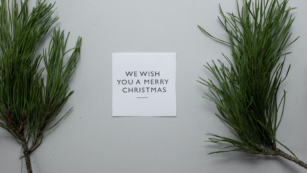Wishes:6_c85_7hrms= Merry Christmas
Diving into the origin of Wishes Merry Christmas unveils a rich tapestry of historical evolution and cultural influence. This section sheds light on how these greetings evolved over the time, and the role Charles Dickens and Christmas cards play in this cultural tradition.
The Historical Evolution of Christmas Greetings

Christmas greetings trace their roots back to the Middle Ages, around the 16th century. Traditional phrases such as “Merry Christmas,” bear origins from words such as “merry” which, during this time, meant “blessed” or “peaceful,” not the modern interpretation of “joyful.” It wasn’t until the Victorian era, however, when these wishes started being incorporated into the popular Christmas culture.
The Role of Charles Dickens and Christmas Cards
Charles Dickens, one of literature’s greatest luminaries, played a vital role in popularizing the wishes Merry Christmas. His novel ‘A Christmas Carol’ published in 1843, featured the greeting frequently, thus spreading its usage far and wide.
In the same era, Christmas cards started gaining popularity. Sir Henry Cole, a British civil servant, commissioned the first commercial Christmas card in 1843. These cards often featured the wishes Merry Christmas greeting, further cementing its role as an essential part of Christmas celebrations.
Why We Say “Merry” Instead of “Happy”
Inquiring minds often ask why “Merry” takes precedence over “Happy” in our Christmas greetings. This section delves into the cultural nuances and psychological influences of these terms to understand their unique roles in our festive lexicon.
Cultural Differences in Christmas Greetings

Countries around the world have distinct traditions for wishing joy during the festive season. In England, for instance, the term “Happy Christmas” possesses a significant following, indicating their preference for the word ‘happy.’ Yet, American and Canadian cultures typically lean towards Wishes Merry Christmas.
The expression wishes Merry Christmas solidified its place in the English vernacular through the works of Charles Dickens, largely acclaimed for his novel ‘A Christmas Carol.’ Over time, the phrase seeped into various nations, dominating Christmas cards and festive communications, especially in the USA.
Psychological Impact of “Merry” vs. “Happy”
The choice of “Merry” over “Happy” is not merely cultural, but also psychological. Psycholinguistics, the study of how our brains process language, suggests that words carry not just semantic, but also emotional and associative weight.

“Merry,” an adjective loaded with joviality and high-spirits, tends to evoke a sense of vivaciousness and exuberance. Contrarily, “Happy,” while positive, leans towards contentment and satisfaction. Psychologically, merriment conveys a higher degree of intensity and gaiety, prompting its usage in the lively season of Christmas.
Building on the psychological premise, wishes Merry Christmas was popularized for the unique joyous vibrance it adds to Christmas celebrations. The combination portrays a vibrant season, a time of exultation and high spirits, aligning with the essence of Christmas.
Festive Greeting
So, it’s clear that the wishes Merry Christmas holds more than just a festive greeting. It’s deeply rooted in history, culture, and psychology, making it a significant part of our Yuletide celebrations. The term’s evolution over the centuries, from the Middle Ages to the influence of Charles Dickens, has shaped it into a universal expression of joy and goodwill. The choice of “Merry” over “Happy” also adds a unique flavor to the greeting, resonating with the intense, joyful spirit of the season.

